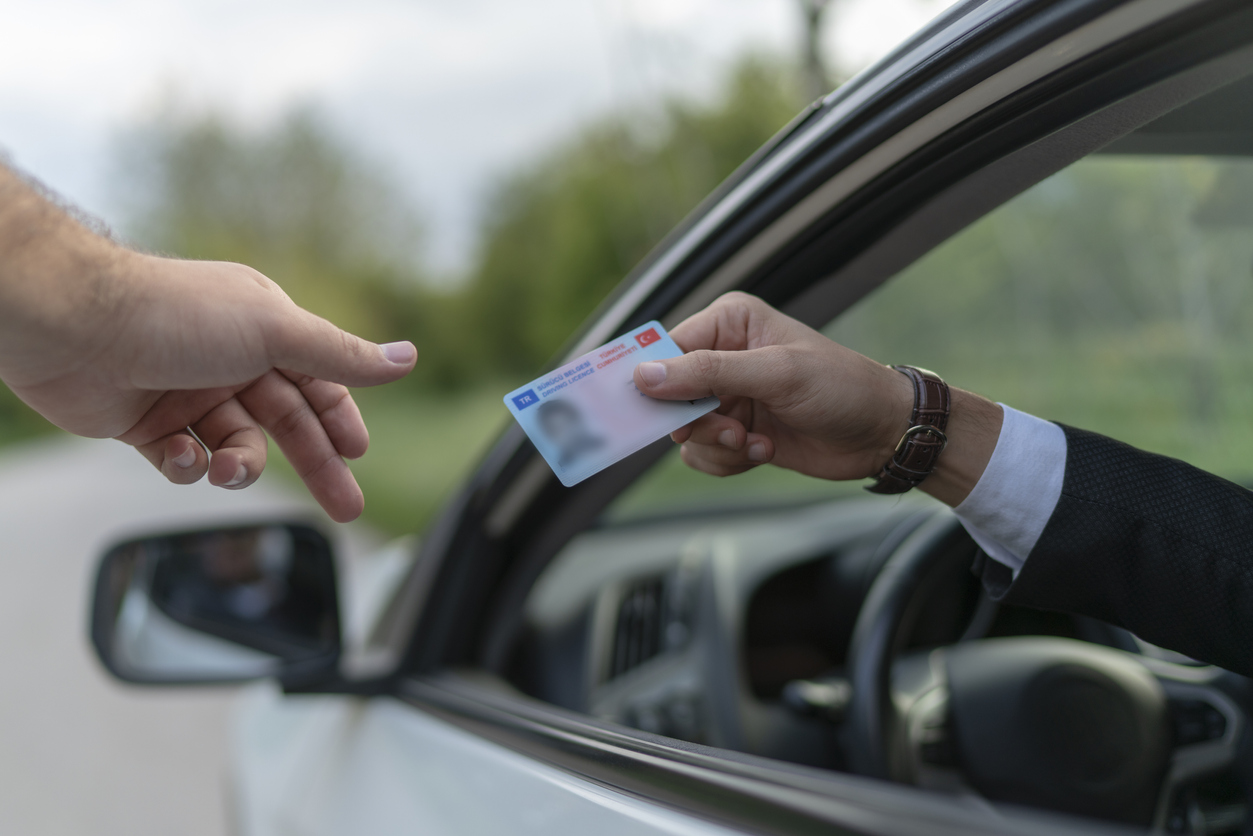Driving Without a License Versus Driving Without a License
Bill Allen | March 29, 2022 | Florida Law

Driver’s licenses help states regulate who has the right to drive legally. States like Florida require you to pass written and skills tests before issuing you a license.
This does not guarantee you are a safe driver. However, combined with your driving history, the Florida Department of Highway Safety and Motor Vehicles (FLHSMV) gets a clear picture of your driving habits. Using this information, FLHSMV has several options for suspending your license.
Here is the difference between driving without a license and driving without your license in your possession, as well as some of the grounds for suspending licenses.
Driver’s License Violations
Police officers in Florida can issue two types of citations for driver’s license violations:
Driving Without a License on Person
Florida law requires you to carry your driver’s license while driving. The driver’s license must be legible and not mutilated or defaced.
You must also present your driver’s license to a police officer upon request. If you have your license but refuse to exhibit it to a police officer, you have violated Florida law.
This law also applies to drivers who have a valid driver’s license but cannot or will not produce it for a police officer. Florida law treats a violation as a non-moving traffic offense. You will receive a fine, but you will not serve time in jail or have any points added to your driving record.
Driving Without a License
Florida law requires you to have a valid license while driving. If FLHSMV suspends your license, you cannot drive unless you reinstate your license or obtain a hardship license.
FLHSMV can suspend your Florida driver’s license for many reasons, including:
Point Suspensions
Florida adds points to your driving record based on both Florida and out-of-state citations you receive. The number of points you receive depends on the violation. More severe violations will merit more points on your record.
Court-Ordered Suspensions
Court-ordered suspensions happen when you are convicted of specific traffic crimes. For example, a conviction for DUI or reckless driving will result in an automatic suspension by the court.
FLHSMV can also suspend your license if you fail to comply with the terms of a traffic conviction. If you fail to pay a fine or attend traffic school after a conviction, FLHSMV can suspend your license.
A Traffic Violation that Results in Death or Serious Injury
If you get into a car accident that injures or kills someone, a law enforcement officer will investigate the crash. FLHSMV can suspend the driver’s license of anyone cited in the crash.
Suppose that you get rear-ended, and the police cite the other driver for distracted driving and tailgating. FLHSMV could suspend the at-fault driver’s license if you or any of your passengers were injured.
Habitual Traffic Offender
Sometimes, the point system does not adequately identify dangerous drivers. FLHSMV supplements the point system with the habitual traffic offender program.
Under this program, FLHSMV can revoke a driver’s license for getting too many moving violations within five years, regardless of the total number of points accumulated.
Reinstating Your License
If FLHSMV suspends your license, you have two options to continue driving. To reinstate an unrestricted driver’s license, you must:
- Serve the suspension
- Complete a driver’s education course
- Pay a reinstatement fee
If you need a license before your suspension ends, you can get a temporary hardship license that only allows you to drive to and from work.
To get a hardship license, you must complete an approved driver’s education course and pay a reinstatement fee.
Civil Liability for Driving Without a Valid License
If you get into an accident without your license in your possession, you might risk a ticket. But if you get into an accident without a valid license, you could face serious financial consequences.
Your insurance was probably canceled when FLHSMV suspended your license. As a result, you would bear all of the liability for any crash you cause. These liabilities could lead to financial ruin.
Contact Our Car Accident Law Firm in North Central Florida
If you need legal assistance, contact the Gainesville car accident lawyers at Allen Law Accident & Injury Lawyers at your nearest location to schedule a free consultation today.
We have two convenient locations in North Central Florida:
Allen Law Accident & Injury Lawyers – Gainesville office
2550 SW 76th St #150
Gainesville, FL 32608
(877) 255-3652
Allen Law Accident & Injury Lawyers – Ocala Office
112 S Pine Ave
Ocala, FL 34471
(352) 351-3258

